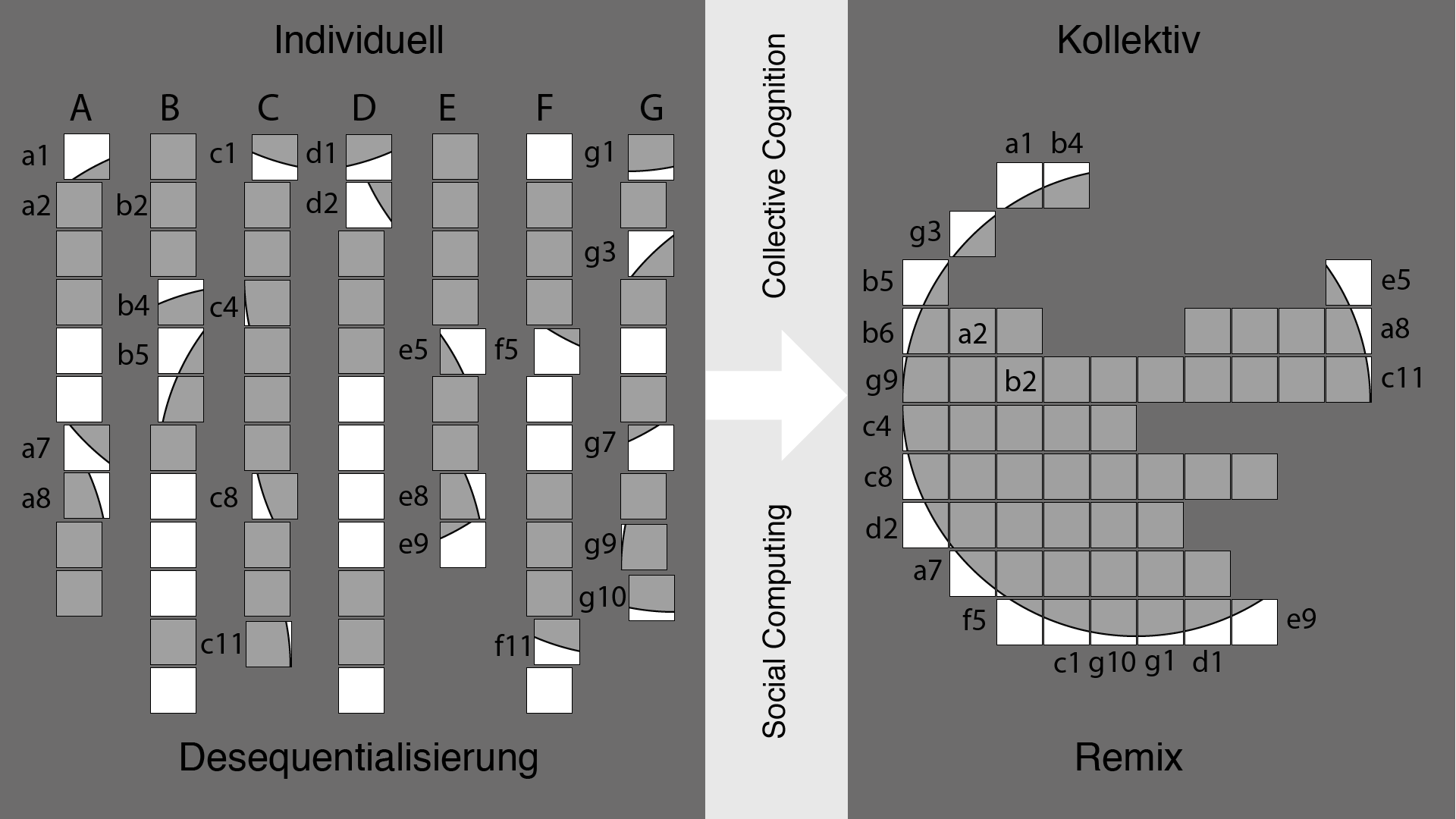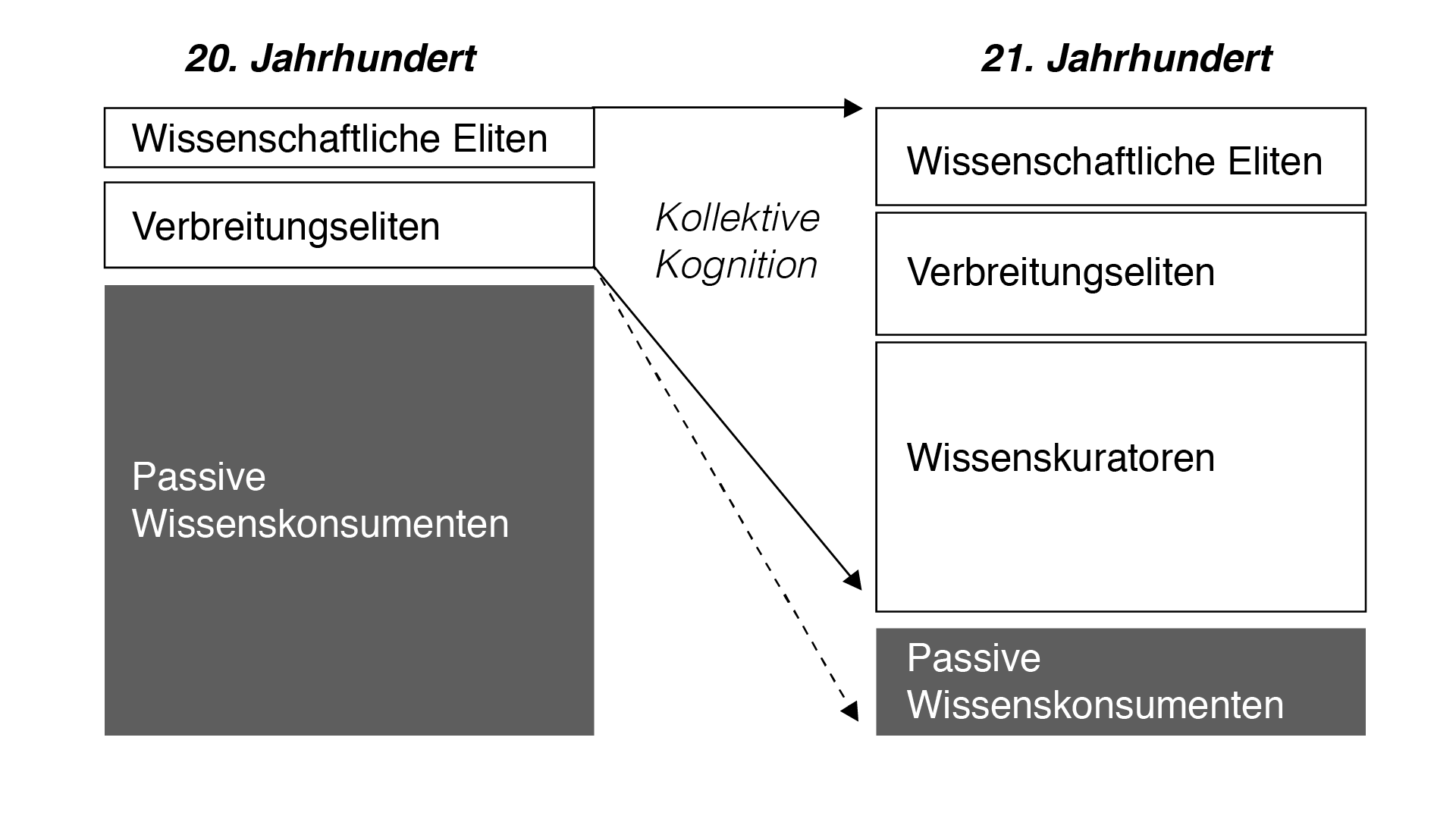Human Collective Cognition System (vs AI) - diversus-me/blossom GitHub Wiki
 {People exchange perspectives in linear sequences. Collective cognition systems allow their users to desequentialize and remix these perspectives. The collective is thus able to recombine subsequences into a new image with a higher utility value than would be possible for an individual. Cognition is always a collective process that iterates itself to a higher utility value. The entire cultural evolution is based on this.}
{People exchange perspectives in linear sequences. Collective cognition systems allow their users to desequentialize and remix these perspectives. The collective is thus able to recombine subsequences into a new image with a higher utility value than would be possible for an individual. Cognition is always a collective process that iterates itself to a higher utility value. The entire cultural evolution is based on this.}
The whole world speaks of AI. Artificial intelligence is fascinating and will help us to interpret complex data sets. But artificial intelligence will never be able to take the complex perspective of a human being with all his biological, mental and social needs. Artificial intelligence is merely a generalized learning experience of the past projected onto the future. In disruptive situations that do not coincide with the goals and data sets of the past, artificial intelligence will either fail completely or, worse still, provide seemingly valid pseudo-results that are difficult to recognize in their insufficiency. At the same time, artificial intelligence disaccustoms its users to sharpen their own intuition, as we observe today in the use of navigation systems, where we notice that we suddenly find it difficult to cope without it. In addition, AI tends to neglect the specific situation of individuals, resulting in a synchronization effect (Gleichschaltung) or even excluding from service people whose behavior patterns deviate from the AI training pattern.
In the complex global situation in which we find ourselves, in which we reach tipping points in all systems, we humans have to manage our own affairs all the more. However, the systems have become so complex that neither individuals nor, as in the past, elites would be able to find sustainable concepts and implement them. The rationality of the individual or small groups is not enough to analyse and process the growing data set. We need the entire human tribe to cope with this situation.
In the tribal situations of the last 2 million years or in the village societies up to the 19th century, agreements in small groups of several hundred opinion leaders were sufficient to reach decisions in the comparatively simple system configuration. Language as a medium and the given information transfer and processing procedures were sufficient to enable the human tribe to survive to this day. In the hypercomplexity of the present with globalized flows of goods, money and information, not even the information systems and decision-making systems of nations, federations or entire language areas are sufficient to analyse and process the data in a targeted manner in order to arrive at sustainable decisions.
We need systems for collective cognition in order to cope with the situation. And as Hölderlin said, "where the danger grows, the saving grows too", exactly such systems are currently being developed. Quora and Reddit can certainly be described as human cognition systems. They perform important tasks. They present information in a comprehensible and mass-compatible way, but at the same time encourage the actors to constantly produce new information in a feedback loop. At the same time, the complexity of the process for the individual is mastered and reduced by means of relevance methods.
An intelligence emerges in the system that goes beyond the individual's ability. The whole is more than the sum of its parts. This is exactly what we urgently need in order to cope with the growing complexity of our systems and circumstances: one or more collective masterbrains. In principle, the Internet has been moving in this direction for 20 years and all the major players we know have made important contributions such as Google, Facebook, youTube, Reddit, Quora, Twitter and everyone else.
Nevertheless, in relation to an ideal human collective cognition system, they have built up blockades that we have to break today in order to further develop our collective rationality. Google's relevance algorithms create a huge redundancy bubble today. Myriads of SEO agencies copy each other's content to manipulate their clients' search rankings. The commercial intentions of well capitalised information providers overlay important information with distorted information. The collective consciousness is distorted by capital interests and we see the results as plastic swirls floating in the oceans.
There are cognition researchers who assume that cognition as a purely individual process does not even exist, but that language as a medium of cognition is always a collective instrument and therefore cognition can only take place collectively. In cognition, there is always an external counterpart who always throws a different perspective on what is observed and thus always sets a dialectical emergence in motion. However, Gleichschaltung and redundancy counteract this process. Many of today's technologies have e.g. equalizing effects by their echo chamber structure and generate redundancy, both in the information structure and in the value catalog of the users.
The DIVERSUS approach aims at developing a dialectical human collective cognitive system, a technological infrastructure that accelerates the Information Entropy and triggers Dialectical Emergence.
 {We observe a shift from the limited rationality of the 20th century to a broader participation model in the 21st century, where recipients turn into active curators of information, even when they do not have the abilities to present information perfectly they still participate actively.}
{We observe a shift from the limited rationality of the 20th century to a broader participation model in the 21st century, where recipients turn into active curators of information, even when they do not have the abilities to present information perfectly they still participate actively.}